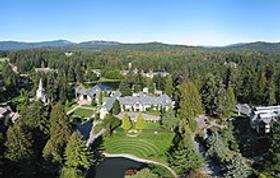First of all, let's understand what a therapeutic school is. A therapeutic school is a special school designed to help troubled children, typically teenagers, with various emotional and other problems. The problems have usually gotten to the stage where the parents can no longer manage their child effectively. They've done counseling. They've tried more approaches to discipline than they knew existed. As a result, they start looking for other solutions. Sending their child off to a therapeutic school sounds like it might be the right answer.
Therapeutic schools come in a variety of forms. They can be non-residential and residential. For the purposes of this article, we are going to focus on residential schools. Of course, which kind of therapeutic school that you decide is appropriate for your child depends on a variety of considerations. For a detailed description of the various types of therapeutic schools, see Therapeutic Program Descriptions on the Independent Education Consultants Association's website.
When to consider a therapeutic school
As a rule, parents probably should consider a therapeutic school for a child challenged by emotional, behavioral, substance abuse, or academic issues, or any other challenge that the local public school or private schools cannot handle effectively. In other words, he cannot receive the consistent treatment and individual attention he needs in a local school and the home setting. Whether to send the child away to a school with a highly structured environment where she will receive the treatment she needs




















